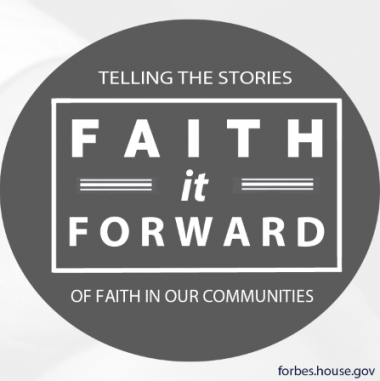'Faith It Forward' initiative hopes to inspire people with stories of faith

Everybody is already familiar with the concept of "paying it forward," so what exactly is "Faith It Forward?"
"Faith It Forward" is a new initiative started by Rep. Randy Forbes, founder and co-chairman of the Congressional Prayer Caucus, according to Breaking Christian News. The purpose of the initiative is to unite America by celebrating the positive impact of faith in local communities.
"Policies are often generated because of real life stories of how those policies impact the lives and direction of a nation. Perhaps no group of stories have had a greater impact on our country than stories of faith. Unfortunately, amidst policy debates, we sometimes lose sight of those stories," Forbes said. "The goal of 'Faith it Forward' is to tell these stories in a central place for policymakers and the world to see."
Members of Congress from all across the nation have already participated in "Faith It Forward" by highlighting inspiring stores of how people of faith in their districts have impacted a change for good in their own communities.
On the movement's Facebook page, people have been commenting positively about the initiative.
"Every Church in AMERICA must have stories that can be used to 'Faith It Forward.' By contributing to this cause Christians can put lights on every hilltop and stamp out the darkness," a user named Earl Spencer wrote.
Facebook user Bernard George lauded the initiative for welcoming stories from people of different faiths. "We need more places to find examples of forgiveness (like in Charleston) and acts of mercy and love to spur us on to do the same, and to have hope. Yes, I am a Christian, and no, I have no desire to take over the government. All I ask is a government that is not hostile to my faith or any other faith, so that we can continue to do charitable works in the name of Christ," he said.
However, a person named Josephine Davis believes that the initiative has to stop now because the government is not the place where people should testify their faith. "You do this at home and at your place of worship," she wrote. "We have a law against this—it's called separation of church and state."











